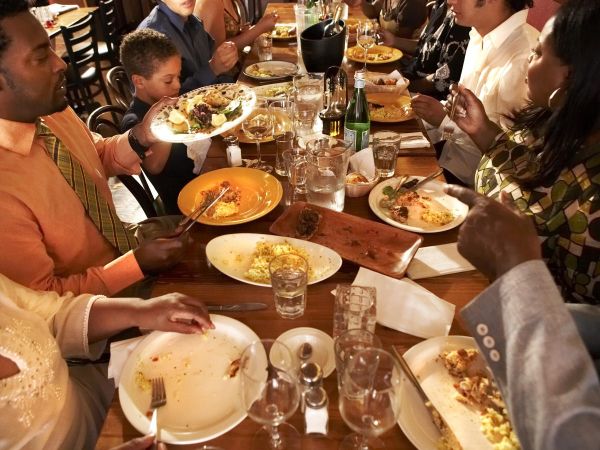
Source: Thomas Northcut / Getty
It was years ago that my friend Rana enlisted me to help drive a Uhaul truck 1000 miles over 17 hours for a move back to New York City. Rana had relocated to Atlanta, but after a year of navigating Dekalb county, she had not found promise in Georgia state’s Black Mecca. After packing the 10 foot vehicle, we hit I-20 to begin the long trek home. We stopped along the way in the small town of Florence, South Carolina, where we’d eventually pick up I-95—but only after traveling to Effingham, an even smaller town in the country, where my grandmother and her nine of her siblings owned 100 acres of inherited land that was split evenly among them.
My grandma Clara had 10 acres filled with rows of cabbage, kale, turnip and butter beans. Bartlett pear and peach trees lined her front yard. A hog and several chickens occupied the back. Minutes after walking in the door of her humble home—uninvited—with a stranger in tow, we were sitting at the kitchen table stuffing our mouths with baked chicken, roast pork, cabbage, lima beans, rice, cornbread and peach tea.
It is not unusual for Black grandmas to open their kitchen and set their table for anyone looking to eat. My grandmother, in particular, is one who cooked a pot of grits everyday because she never knew who might stop in for breakfast. She kept a pot of rice on the stove in case she needed to stretch a meal to accommodate extra mouths to feed—and if she fed you once, chances are she’d feed you a lifetime.
Stopping by my grandmother’s house was intentional. Of course, visiting because it was on the way, but also knowing she would feed us. My friend knew it, too—because that’s what Black grandmas do: feed everyone and their mama and strangers as well.
This unsaid tradition occurred long before this digital era of viral moments. For instance, a white grandmother is celebrated for inviting a young Black teenager to Thanksgiving dinner after an accidental text message was sent to him. This happened to be the case for Jamal Hinton and Wanda Dench in 2016. The two continued to meet annually for Thanksgiving dinner ever since. On Dec. 2, Hinton Tweeted that they would get to tell their “story on the screen” through a partnership with Netflix.
Without all the fanfare and film deals, Black grandmothers have not only served as matriarchal chefs to their own household and extended family, they are also the lifeline to many growling bellies in Black communities. Harlem grandmother’s Minister Francine Davis and Reverend Geraldine Harris of the Greater File Chapel Baptist Church have been feeding Thanksgiving dinner to families in need and senior citizens in their Manhattan community for five decades. The two wrapped their 50th annual Thanksgiving tradition, feeding the community with over 5,000 pounds of food, according to PIX11 News.
Grandma’s Hands is a Portland, Oregan-based food organization where 12 Black grandmothers share family recipes while they prepare meals to tackle food insecurity in their community. Members of the group meet monthly to cook and teach members of the community how to create traditional Black meals with “fresh produce and an emphasis on nutrition.”
This is the innate spirit of many Black grandma’s. Feeding folks is in the tradition of Black familial society that is rooted in African communal culture; transported during the Middle Passage; carried through enslavement—and rarely celebrated in communities and much less in Hollywood or Netflix partnerships.
My grandmother Clara worked the field. She farmed, cultivated and processed her own food. She peddled her crops and homemade pastries. She stored quite a bit in a deep freezer for rainy days—the rest, she cooked and plated and gave away.
While this is no shade to feel good stories or the viral success of Hinton and Dench’s Thanksgiving coincidence, it is a call to action to celebrate Black grandmas who do this on a daily basis just because. They are our own superheroes and heroines—and that’s just food for thought.









